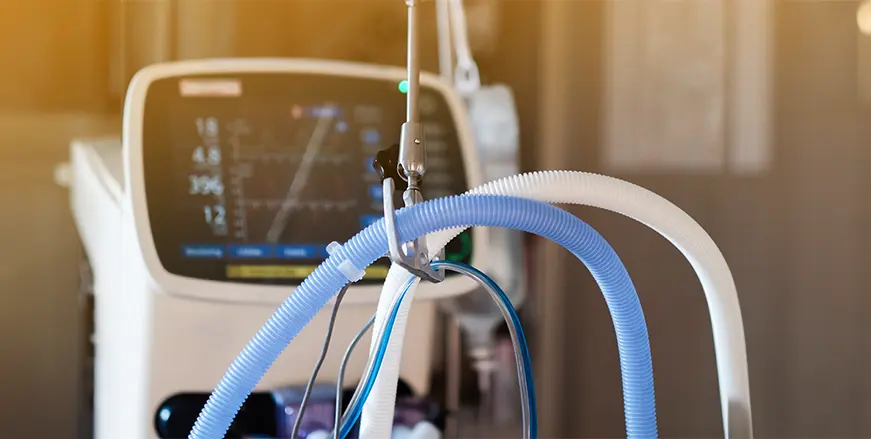Doctor certified article
Understanding Heart Valve Repair/Replacement: A Guide for Medical Tourists

Introduction
If you're considering going abroad for heart valve repair or replacement, there's a lot to think about. This guide aims to give you a full picture of what these treatments involve, what to expect, and the choices you'll need to make.
Types of Heart Valve Issues
First, let's talk about the kinds of valve problems you might have:
Stenosis
When the valve opening gets smaller, it can slow down blood flow and lower overall blood supply to the tissues. This usually needs quick action.
Regurgitation
This is when the valve doesn't close properly, and blood leaks back. This can make your heart work harder than it should.
Atresia
This is a birth defect where the valve lacks an opening. This usually requires surgery early in life.

How Do Doctors Figure Out What’s Wrong?
Correct diagnosis is the first step toward effective treatment.
Echocardiogram
This common test uses ultrasound waves to make a live picture of your heart.
Cardiac MRI
This gives even clearer imaging and is used if the first test doesn't give enough information.
Angiography
This test uses iodine-based contrast to make the arteries show up clearly in pictures and is used if doctors also suspect artery issues.
Treatment Choices
For valve problems, you usually have two options: repair or replace the valve. The best choice depends on various things like how bad the problem is and your general health.
Valve Repair
- Valvuloplasty: A balloon is used to make the valve opening wider.
- Annuloplasty: A ring is added to tighten the valve.
- Leaflet Repair: The flaps of the valve are adjusted so they can close properly.
Valve Replacement
- Mechanical Valves: These last a long time but require you to take medication for life to prevent blood clots.
- Biological Valves: These are made from animal or human tissue and may not last as long but don't require lifelong medication.
Are There Other Options?
Some less severe valve issues can be managed with medicine and lifestyle changes. But if things get worse, surgery could be your best option.
The Surgery Day
What Happens in the Operating Room?
You'll be asleep during the surgery, thanks to general anesthesia. The surgeon will access the heart to repair or replace the damaged valve.
Anesthesia and Safety Protocols
Before surgery, the anesthesia team will run some quick tests to make sure you're good to go. They'll monitor you throughout the procedure to ensure your safety and stability.
Risks and Complications
Every surgery comes with risks, and it's essential to be aware of them. They can include:
- Bleeding
- Infection
- Reactions to anesthesia
- Blood clots
- Valve dysfunction
Your medical team will work hard to minimize these risks.

Recovery Time and What to Expect
Immediate Aftercare
Right after surgery, you'll go to an ICU for monitoring. You'll probably be there for a couple of days.
How Long Until You’re Fully Recovered?
Full recovery can take several weeks. During this time, you'll have regular check-ups, either in person or virtually if you're abroad.
Aftercare and Ongoing Management
Medication
You'll likely need medication to help your heart function better or to prevent blood clots.
Lifestyle Changes
Healthy habits like a balanced diet and regular exercise can help speed up your recovery and improve your heart health.
Remote Follow-Ups
If you're a medical tourist, virtual check-ups can be arranged to ensure you're recovering well.
When Can I Get Back to My Regular Life?
Most people can return to work and other regular activities within six to 12 weeks after surgery.
Should You Get a Second Opinion?
Given the importance of heart valve repair or replacement, it's always a good idea to seek a second opinion. It's even more crucial when considering medical tourism.
How This Affects Your Long-Term Health
Having a successful heart valve repair or replacement can dramatically improve your quality of life and extend your lifespan. However, you'll need to continue monitoring your heart health.
Conclusion
Choosing to undergo heart valve repair or replacement is a significant decision that necessitates careful planning and informed consultation with healthcare professionals. Through Quality Care Global's network of healthcare providers, medical tourists have access to quality consultations and treatment options. This guide is designed to give you the essential knowledge to make educated decisions about your treatment, risks, and post-operative care. Virtual follow-ups and remote consultations are particularly beneficial for medical tourists, ensuring the continuity and quality of care.
References
Nishimura, R. A., Otto, C. M., Bonow, R. O., Carabello, B. A., Erwin, J. P., & Guyton, R. A. (2017). AHA/ACC Focused Update of the 2014 AHA/ACC Guideline for the Management of Patients With Valvular Heart Disease. Journal of the American College of Cardiology, 70(2), 252-289. Holmes, D. R., Mack, M. J., & Kaul, S. (2011). 2011 ACCF/AHA guideline for coronary artery bypass graft surgery. Journal of Thoracic and Cardiovascular Surgery, 143(4), e167-e224. Society of Thoracic Surgeons. (2021). STS Adult Cardiac Surgery Database Executive Summary. Retrieved from STS Database Sedrakyan, A., Wu, A. W., Parashar, A., Bass, E. B., & Treasure, T. (2005). Off-pump surgery is associated with reduced occurrence of stroke and other morbidity as compared with traditional coronary artery bypass grafting: a meta-analysis of systematically reviewed trials. Stroke, 36(11), 2277-2283. Naylor, C. D., Baigrie, R. S., Goldman, B. S., & Basinski, A. (1995). Assessment of Priority for Coronary Revascularisation Procedures. Lancet, 345(8951), 720-727.

